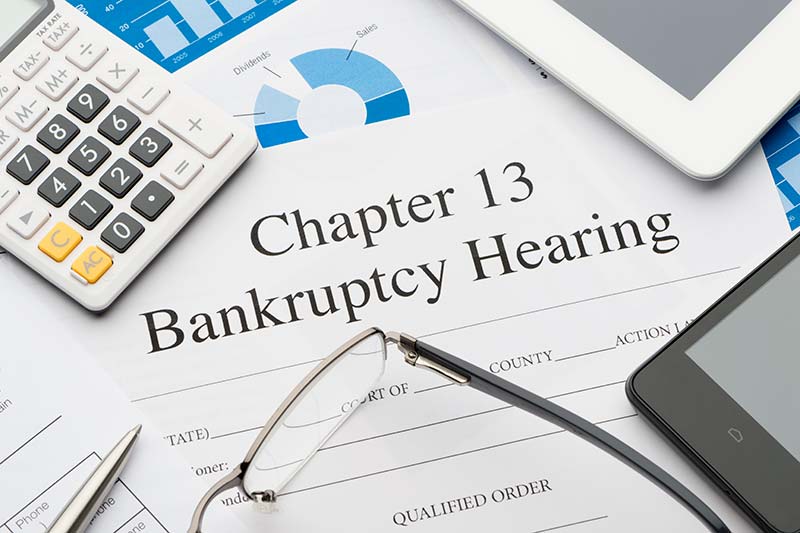If your personal debts are mounting and you are struggling to pay your obligations while keeping your creditors at bay, Chapter 13 bankruptcy may be a good solution for you. Chapter 13 of the US Bankruptcy Code provides a way for individuals with a regular source of income to pay off their debts over a specific timeframe with the supervision of the bankruptcy court and a trustee.
In a Chapter 13 bankruptcy, you’ll work with your bankruptcy attorney to create a reorganization plan where debts are prioritized and paid according to a court-ordered schedule. A Chapter 13 debtor does not receive a “clean slate” like a Chapter 7 debtor, but since creditors receive some payment, the Chapter 13 debtor’s credit history and score are not impacted as much.
Chapter 13 bankruptcy is often preferable to Chapter 7 because it enables the debtor to keep a valuable asset, such as a home, and because the debtor can propose a personalized plan to repay creditors over time, usually from three to five years. Also, individual debtors who don’t qualify for Chapter 7 may be able to file under Chapter 13 instead. You can read more about Chapter 7 bankruptcy in this article.
Do You Qualify to File a Chapter 13 Bankruptcy?
As of 2020, Chapter 13 is only available to individuals (not corporations or partnerships) who have unsecured debts less than $394,725 and secured debts of less than $1,184,200. These amounts will change so we recommend speaking with a qualified bankruptcy attorney to learn the current thresholds.
To start a Chapter 13 bankruptcy, the debtor or the bankruptcy attorney, files a Petition for Bankruptcy and a creditor payment plan in the court where the debtor lives. As soon as the petition and plan are filed, an automatic stay goes into effect which stops most collection activities against the debtor and his property. The plan must provide for fixed-amount payments to the Chapter 13 trustee on a regular schedule, typically biweekly or monthly.
After the plan is approved, debt payments are made to the trustee, who makes distributions to creditors according to the provisions of the confirmed plan. The debts may be paid back in whole or in part, depending on the terms of the plan.
Advantages of Chapter 13 Bankruptcy
Chapter 13 bankruptcy is very different from Chapter 7 since the Chapter 13 debtor usually remains in possession of his property while he makes payments to his creditors. A Chapter 13 debtor can stop foreclosure proceedings and may cure delinquent mortgage payments while he continues making the mortgage payments that come due during the Chapter 13 plan on time.
Debtors can also repay secured debts (other than a mortgage for their primary residence) and extend them over the life of the Chapter 13 plan. Doing this may reduce the payments. Chapter 13 may also protect third parties, like co-signers, who are liable with the debtor on consumer debts.
A repayment plan is similar to a consolidation loan where you make your consolidation plan payments to a trustee who then makes designated payments to your creditors. You don’t have to deal directly with your creditors while you are protected under bankruptcy rules.
Certain debts are not discharged in a Chapter 13 bankruptcy including some long term obligations (such as a home mortgage), debts for alimony or child support, certain taxes, debts for most government-funded or guaranteed educational loans or benefit overpayments, among others.
Unlike Chapter 7, a Chapter 13 debtor does not receive an immediate discharge of debts. A chapter 13 debtor is entitled to a discharge upon completion of all payments under the plan. This could take several years depending on the plan.
As you can see from this brief overview, bankruptcy is a complicated process. Attorney Gregory L. Davies has decades of experience as a bankruptcy attorney and he can guide you through the maze of bankruptcy laws, procedures, and obligations to ensure your repayment plan is approved and you receive a fresh start after meeting your financial obligations.
If your debts are overwhelming you, call Davies Law at (425) 259-2755 or complete our simple form to set up an initial consultation to discuss your specific circumstances and how we can help. We also offer virtual meetings if you prefer.

